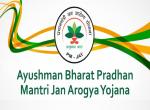As a Visiting Fellow of Vivekanand International Foundation I had promised myself that in writing any papers for the Foundation the use of the first person singular would be avoided. So far that has happened, but perhaps the time has come to make one exception, which is why in this paper the letter ‘I’ will appear. My apologies to the readers in advance.
On 29th August, 2011 I had the honour of participating in a Round Table organised by ‘India Today’ on the subject of the proposed Lokpal /Jan Lokpal Bill. I was the least distinguished of the luminaries present, legal, academic and representatives of civil society. Shri Prashant Bhushan and Shri Arvind Kejriwal were the two leading representatives of civil society. They both made out a case for a Jan Lokpal who would have overriding powers over every section of persons working in the public domain, in the matter of corruption and public grievances against government and its officials. Shri Anna Hazare and his people have already widely publicised the form and substance of the Jan Lokpal and that we need not repeat here. What struck me, however, was that a case was being made out that all investigating agencies in India, especially the police and CBI, were corrupt, inefficient or easily amenable to pressure from government. Therefore, in order to combat corruption the Jan Lokpal institution would have its own investigating agency, numbering from anywhere between 15,000 and 80,000, depending on what the Jan Lokpal thought necessary, independent of government, possessing police powers and being authorised to prosecute any public servant, elected or appointed. As for the police and CBI, they could look after all other crimes and economic offences.
This raises many questions which would ultimately lead to the question of the effectiveness of the institution of Jan Lokpal. If the police is corrupt, inefficient, ill-equipped, badly trained and badly led, can it be trusted to deal with offences such as murder, rape, dacoity, armed robbery, terrorism, militancy and anti national activities aimed at destroying the integrity of the country? Can economic offences be separated from corruption because the money for corruption generally comes out of an economic offence? Are murder and rape lesser offences than corruption so that in the case of the former we leave the people to the tender mercies of an incompetent police force, but treat corruption so seriously as to constitute a special investigating agency for it? The entire stand of Shri Anna Hazare and his advisors rests on a conviction that all public servants are corrupt. If all public servants and all politicians are corrupt, is this not a reflection of the total rottenness of Indian society? Or is it that Indian society is sound and honest and all public servants are some sort of aliens from another planet planted in Indian soil to give India a corrupt government? If that be the belief why do we think that the Lokpal, its members and staff will not be equally corrupt or that civil society will not degenerate into a corrupt group?
It might be useful to reflect on the origins of that level of corruption which has caused such revulsion in Indian society as to give rise to a mass movement. N.N.Vohra had written a quite prescient report on corruption in which he makes very clear reference to the nexus between the politicians and the bureaucracy, which has grown in recent years. There is no record of the year in which corruption was born, unlike the record of the Day of Nativity. But one could make so bold as to say that without going back into the archives of history, the present level of corruption was born in 1967. For the first twenty years of independence we were still ruled by politicians who had come through the crucible of the independence movement, were influenced by Gandhian traditions, were personally austere and were imbued with a sense of public service. When the purchase of legislators began in Bihar, Haryana, Madhya Pradesh, etc., in 1967 things changed dramatically. The legislators realized that they command a price, which had to be paid to gain power and retain it. The State was subverted, the civil servants suborned and a sense of public service was replaced by greed for personal profit. To my mind that was the day on which corruption, as we know it today was born. Financial corruption is not the only aftereffect of this change. The purchase of power, the advancement of greed and the demise of a sense of public service had the further effect of eliminating from the psyche of government any respect for rules, regulations and the principles of propriety. Favours had to be given to gain favours, which removed from the system any desire to follow rules and replaced it by an eagerness to be arbitrary in decision-making. It is such arbitrariness which permits a minister to make land allotments contrary to rules, take economic decisions which favour a particular individual or group, accept financial favours in order promote cronyism and be totally ad hoc in the manner in which the administration is run. There is no sense of trusteeship in public affairs any more, which means that if an election is to be won, if power is to be consolidated, the irresponsible spending of public funds to buy votes is deemed to be legitimate. The benefits which all parties in Tamil Nadu shower on the electorate, regardless of what it does to the public exchequer, is a good example of this.
Arbitrariness and wilful exercise of power negate good government. How does one define good government? First and foremost it is a government according to laws, rules and regulations and the mandate given to the ruling party by the electorate when voting it to power. Good government is one that ensures that equality before law as enshrined in Article 14 of the Constitution is in fact enforced and respected. This means that the rules and regulations will not be interpreted in favour of a person whose case has no merit, but who is either prepared to pay a bribe or has the right political connections. Equality before law demands that laws, rules and regulations are widely disseminated for public knowledge so that the individual citizen knows where he or she stands vis-à-vis government in any matter concerning him. It may be renewal of a driving license, obtaining a building permission for construction of a house, gaining access to a scheme for those below the poverty the line, being paid fair wages for a day’s work, having a grievance settled, obtaining a tax rebate or refund, acceptance of tenders and obtaining a work order, or any of the myriad things in which people interact with government. It means that in the matter of crime the police will strictly follow the procedures laid down in Chapter XII of the Code of Criminal Procedure, a citizen may be confident that a FIR lodged by him will be brought on record and that investigation of an offence will be done with due dispatch and diligence. It means that a law-abiding citizen will be supported by the State when he goes about his normal work and those who violate the law will be called to account.
Another aspect of good government is the functioning of government in accordance with the principles laid down in the Preamble to the Constitution and the Chapter on Directive Principles of State Policy. Good government will ensure for the citizens of India justice, liberty, equality and fraternity and the Indian State will secure for all the people a social order for the promotion of their welfare. Anything else is bad government. By definition a good government has to be an honest government and a bad government is bound to be dishonest. If, therefore, corruption is to be rooted out from this country we need good government.
The three pillars of the Indian State, the Executive, Legislature and Judiciary are all governed by the above definition of good government. At present the Executive, instead of promoting the welfare of the people, is busy promoting the sectional welfare of some people to the detriment of public welfare. The judiciary is stepping in increasingly to protect citizens either from the excesses of the Executive or forcing the Executive to perform a duty that it has neglected, but in the course of this the judiciary has lost sight of its true function of expeditiously dealing with criminal, civil and constitutional cases, instead of losing itself in the sterile sands of public interest litigation which has gone haywire by over exploitation. The Legislature, unfortunately, has become a cockpit for political power play and legislators are doing everything but legislate and call government to account in the Legislature. All these are enemies of good government. The agitation led by Shri Anna Hazare completely lost sight of the fact that it is good government which is the answer to corruption and instead has gone off on tangent in which the Lokpal has all attention focused on it and no one discusses good government.
Some sort of a Lokpal Act will ultimately be passed. The activists want the Lokpal to have complete freedom in the matter of the size or its operations, the number of people it will employ, the procedures for such employment and the procedures which will apply to the working of the Lokpal itself. The supporters of the Lokpal claim that they are not suggesting anything undemocratic in this. The main function of the Legislature is to ensure that the government does not appropriate any funds which the Legislature has not voted, nor spend any monies which the Legislature has not authorised. The Lokpal wants to bypass this, to have an open-ended budget and feel free to increase the size of the army under its control. This places the Lokpal beyond the constitutional reach of the provisions relating to the budget being under the control of the Legislature. The fact that expenditure may be charged upon the Consolidated Fund of India as distinguished from other revenue account expenditure does not mean that there is no legislative control over such funds. It only means that when framing a budget the Legislature will, without voting on it, make a provision for the sums so charged. For example, the salaries, allowances and pension payable to judges of the Supreme Court are charged upon the Consolidated Fund of India. The courts cannot decree that the amount of such charged funds will be increase as decided by the courts. That is within the domain of the Legislature. Similarly, certain aspects of expenditure on the Lokpal will be charged to the Consolidated Fund, but that cannot mean that the entire budget of the Lokpal is open-ended and that the Lokpal on its own can increase the organisation’s expenditure, work force and other expenses at will. Not unless the Constitution is changed to place the Lokpal’s budget outside the purview of Parliament, which cannot be done and will not happen.
A Lokpal which enjoys the kind of independence that the activists are demanding will become a law unto itself. One is aware of the civil society’s somewhat woolly idea that it will be able to call the Lokpal to account. How? By launching another agitation? One has little confidence that such an institution will be any improvement on the present arrangement. Of course in the present emotionally charged environment one is not allowed to make such a statement, which is precisely why I have made it as I refuse to conform to the narrow definition of political correctness.
Public servants must be called to account. Corrupt officers must be punished and that, too, swiftly, but honest officials must be protected. The Jan Lokpal of the activists is so designed that a public servant virtually has no protection even for bona fide mistakes. There is almost no room for departmental accountability in which an official can explain his actions to his superiors, who can decide whether the action is to be supported or not. The minute a complaint is made it becomes a part of the criminal justice system and the government servant would come within the purview of the investigating agency, which to all intent and purpose is a police force. How can such an organisation understand the reasons for a particular administrative decision? How can criminality be read into a particular best judgement under a given set of circumstances? The activists state that an honest officer has nothing to fear, but imagine the fate of such an officer who has to undergo a prolonged investigation by an agency not really geared to taking into account administrative exigencies. The interaction may end in prosecution, bringing disgrace and dishonour to the official. A court case means that he would have to hire expensive lawyers and even if he is honourably acquitted, with the court finding that the case against him is ill founded, that officer is ruined for life. In other words, the Lokpal really would not distinguish between an honest officer who might have made an error of judgement and a dishonest officer who can afford to fight a case and has no sense of honour in the first place and does not fear public disgrace. Will this give us good government?
A great deal of political corruption arises out of the fact that elections are expensive. The activists talk of electoral reform being on their agenda. Can they make it possible for an honest person to be honestly funded by the State or by the some other approved mechanism whereby he can fight an election with some chance of success? In the matter of administrative reforms and promotion of good government the activists are silent. To them the Lokpal is the answer to the disease of corruption. Obviously, the way things are going, there will be Lokpal Act. How effective the institution will be can be known only after about five years. Meanwhile my fear is that the corrupt will seek new ways of escaping the Lokpal and the honest, just to save their skins, will stop taking decisions, thus paralysing government.
I must end with a personal experience in order to illustrate this point. From 1962 to 1965 I was D.C. of Betul. On March 24, 1964 the then Chief Secretary of Madhya Pradesh, R.C.V.P. Norohna, ICS, informed me that exactly one week later 25,000 East Bengal refugees would be sent to me and that I was required to put up transit camps, feed and look after the refugees, create a rehabilitation zone out of 30,000 acres of scrub forest and permanently settle the refugees in agriculture and allied activities. We set up four transit camps within a week, for which I virtually robbed the railways of camp material they were sending to one of their work sites, dug wells, built roads and brought a power line from Itarsi almost seventy-four kilometres away within seven days. In the course of a few months we cleared the forest, established thirty-six villages, completed housing and public buildings and moved the refugees to their permanent homes. My district had the distinction of being the only one in India from which not a single refugee deserted and even today they are settled in the rehabilitation zone. I had no time to follow procedures, invite tenders, etc. The Chief Secretary asked me to write my sins on one sheet of paper, on which he wrote, “D.C. Betul has carried out my orders. C.M. may approve”. D.P. Mishra, the Chief Minister, gave his approval. This was my shield and buckler against any future questioning and no one, not even audit, raised a single objection. Would I repeat this under the present circumstances? Not on your life! With the fear of the Lokpal looming over me I would have permitted the refugees to die or run away, invited tenders, followed procedures, pushed the file back and forth and taken five years to start the work. I was and am honest and enjoy a public reputation for this. The Lokpal would paralyse me but the corrupt would continue to go on their own merry way. With folded hands I ask civil society not to be swayed by emotion alone but to find a balance between swiftly punishing the corrupt, encouraging the honest to act positively and create an environment for good government in which corruption will no longer be an issue.
-----------------------------------------------
Published Date: 7th September, 2011









Post new comment